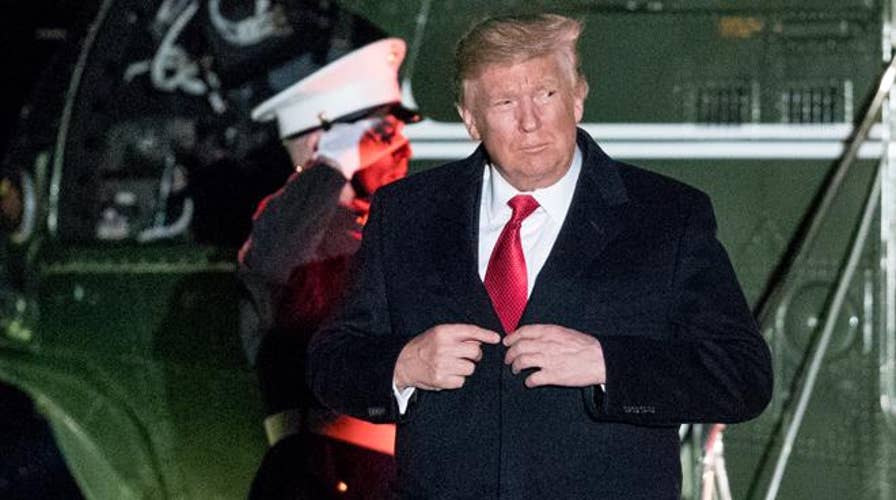What are the chances Congress will pass Trump's budget?
Strategy Room: David Mercer and Charmaine Yoest on Washington to the White House's proposal
President Trump's first budget blueprint is calling for the elimination of federal funding to a host of arts and humanities programs, as the new administration seeks to redirect taxpayer dollars to defense.
The blueprint released by the White House “proposes to eliminate funding” for: the National Endowment for the Arts (NEA), National Endowment for the Humanities (NEH), and the Corporation for Public Broadcasting, which sends some money to PBS and National Public Radio.
Federal funding of arts programs, including money for public radio and television, has been the target of Republican administrations and congressional budget hawks for decades.
Mitt Romney said during his 2012 presidential campaign that the test of a program’s value was whether it was “so critical that it's worth borrowing money from China to pay for it."
Supporters of public funding of the arts have fought out challenges for years, but this year could be different with Republicans controlling the budgetary levers at both ends of Pennsylvania Avenue.
“The president finally got to the point where he said, 'do I really want to make the coal miner in West Virginia, or the auto worker in Ohio, or the single mom in Detroit to pay for the National Endowment of the Arts or the Corporation for Public Broadcasting?' And the answer is no,” White House budget Director Mike Mulvaney said Thursday during an appearance on "Fox & Friends."
Public broadcasters and their supporters were quick to respond to Trump’s plans to fulfill a campaign promise to end federal financing of public media.
Patricia Harrison, president and CEO of the Corporation for Public Broadcasting (CPB) cast the cuts in apocalyptic terms, saying they would “initially devastate” and “ultimately destroy public media’s role in early childhood education, public safety, connecting citizens to our history, and promoting civil discussions – all for Americans in both rural and urban communities.”
Created by Congress in the Public Broadcasting Act of 1967, the CPB is the largest single source of funding for public radio, television, and related online services. In 2016, the CPB received a $445 million slice of the federal government’s $4 trillion budgetary pie.
National Endowment of the Arts Chairman Jane Chu, an Obama administration holdover, told staff she was “disappointed” by the Trump administration budget blueprint, but added she looked forward to working with the Office of Management and Budget (OMB) to “prepare information they have requested” and would “operate as usual” until cuts were actually made.
She then noted that the NEA as a federal government agency is prohibited from engaging “in advocacy, either directly or indirectly” but would “continue our practice of educating about the NEA’s vital role in serving our nation’s communities.”
Established in 1965, the NEA’s primary mission is to provide grants to museums, symphony orchestras, as a means to “encourage individual and institutional development of the arts.”
The NEA also distributes funds to individual artists and to state arts agencies. In fiscal 2014 and 2015, NEA had a budget of $146,021,000, according to the NEA’s latest financial statement.
The NEA has long been a target of fiscal and social conservatives, whose opposition reached peak levels in the 1980s after several controversial artists and projects received federal funds.
The more controversial grants included one to artist Andrew Serrano who featured a photo of a crucifix submerged in a glass of his own urine. Another was given to Robert Mapplethorpe, whose NEA-supported exhibit in Cincinnati was cancelled because of protests of aspects of his art that showed explicit photos of sexual acts and S&M culture.
PBS President and CEO Paula Kerger argued the annual cost to Americans was insignificant but the payoff for children was huge.
"The cost of public broadcasting is small -- only $1.35 per citizen per year -- and the benefits are tangible: increasing school readiness for kids 2-8, support for teachers and homeschoolers, lifelong learning, public safety communications and civil discourse,” said Kerger in a statement.

























